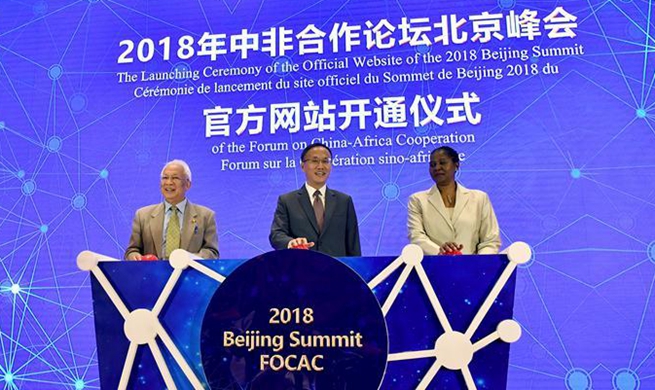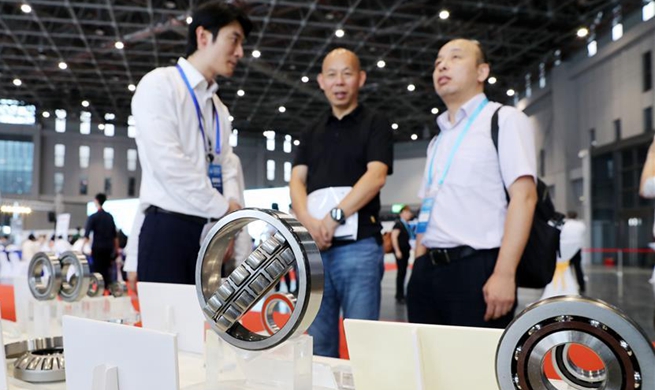by Nathan Morley
NICOSIA, Aug. 8 (Xinhua) -- Europe appears to be on a collision course with Washington, after Brussels urged European businesses to push ahead with investment in Iran, in defiance of new U.S. sanctions on the Middle Eastern country.
"We are encouraging small and medium enterprises in particular to increase business with and in Iran as part of something that for us is a security priority," EU Foreign Policy chief Federica Mogherini told reporters Tuesday.
The move, which has seen France, Britain and Germany close ranks, could further destabilize the transatlantic relationship, which has been fractured over trade tariffs and NATO spending.
"There's no question that scuttling the Iran nuclear agreement and now enforcing secondary sanctions against Europe will strain our already frayed relations with traditional allies," Dalia Dassa Kaye, the director of the Center for Middle East Public Policy at the RAND Corporation, told Xinhua.
"The sanctions will hurt our European allies and Iran, especially its people, the most. Unfortunately, it's not clear they will help advance U.S. interests in making Iran more compliant and less dangerous. In fact, things may get even worse."
Kaye said the disagreement could be a turning point in the history of relations between the United States and its key allies.
"Unlike before the nuclear agreement, where the U.S. had broad international buy in for sanctions against Iran, this time around, sanctions compliance is being forced by coercion, which is resented across European capitals."
"European leaders are trying to push back through blocking statues and tough rhetoric in support of the agreement, but their companies are not likely to risk losing the U.S. market and many major firms have already left."
The fallout from the sanctions across Europe is immense, with scores of companies standing to lose billions of euros in commercial deals with Iran.
Italy's Eni, France's Total, Anglo-Dutch Royal and Dutch Shell have energy agreements with Iran, whilst aircraft maker Airbus, German industrial giant Siemens and auto manufacturer Renault also do business in Iran.
As for the 2015 nuclear accord, Kaye said it will be difficult for the deal to stay in force without the United States and, most critically, without relief from the crippling economic embargo, which was a core component of the deal to incentivize Iran to agree to nuclear constraints.
"Without economic benefits, we could see the weakening of the nuclear constraints over time and ultimately face a situation where Iran's nuclear program returns to pre-JCPOA (Joint Comprehensive Plan of Action) levels," Kaye said.
China, Russia and the European Union remain signatories to the 2015 nuclear accord, under which economic sanctions on Tehran were removed in return for the curtailment of the Iranian nuclear program.
But, crucially, the outlook for Iran will get dramatically worse in November, when a second round of embargoes are enforced, targeting the energy and banking sectors. There has been a 50-percent drop in the value of the Iranian currency rial since April and the cost of essential goods -- including many foodstuffs and medicine -- has risen.
"Once the second round of sanctions kick in and target Iran's oil exports, we can expect a devastating impact on the Iranian economy," Kaye added.
For many Iranians, there is a sense of disappointment with America for reneging on the deal.
"The Iranians clearly feel betrayed and given that most of the international community believes they've been in compliance with the agreement, they have a point.
"That said, there is widespread concern with other Iranian behavior in the region. But it's not clear that this extreme pressure on Iran will bring about better Iranian behavior. If we don't see any change in Iran's behavior or a 'better' agreement after this pressure campaign, what's next?"













